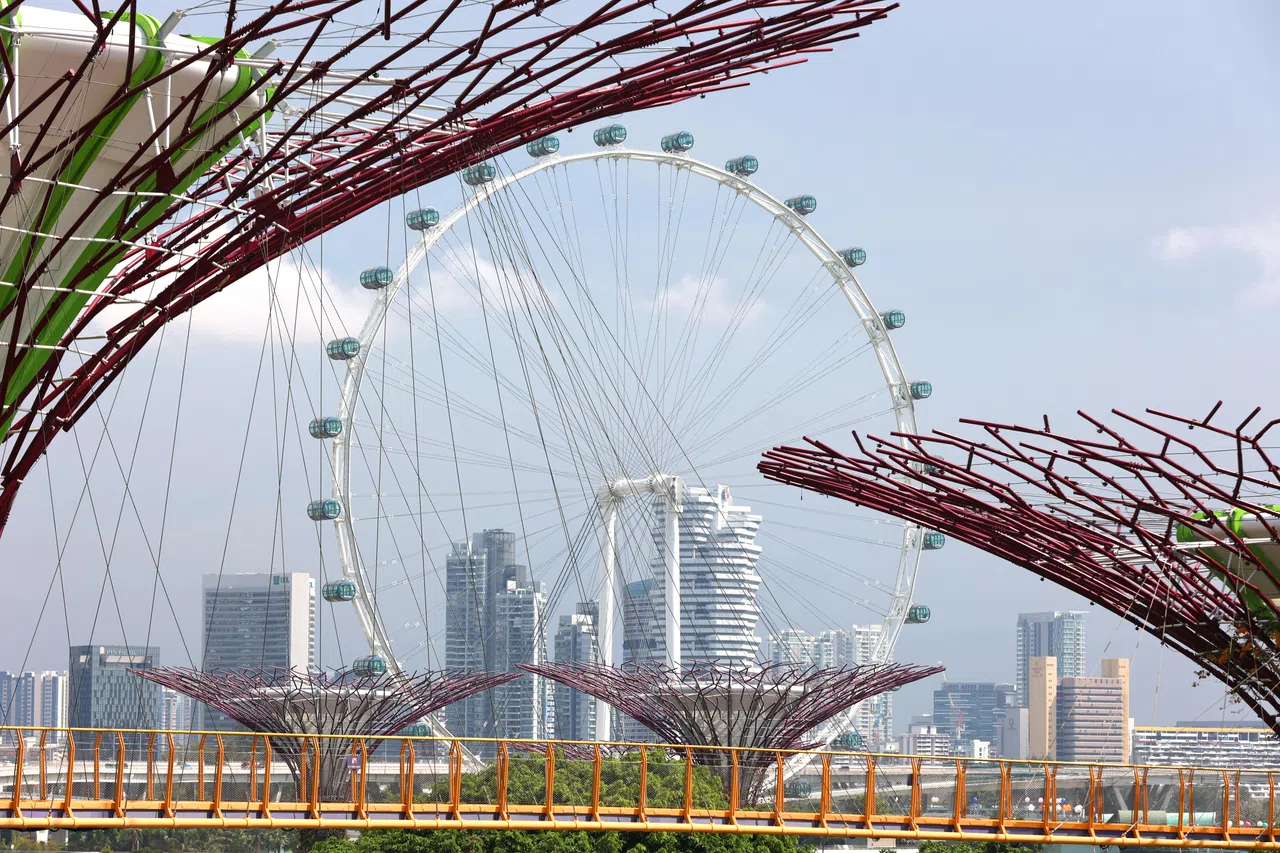Health Canada has been ordered to reassess cluster headache patient Jody Lance’s request for psilocybin, a compound in ‘magic mushrooms’
Article content
It’s easier to get access to an assisted death in Canada than to a treatment that could make life bearable, according to the lawyer for a Calgary man fighting for legal access to a psychedelic drug to treat excruciating cluster headaches.
Jody Lance’s request for emergency access to psilocybin, a compound found in “magic mushrooms,” was denied by Health Canada last year, after the regulator claimed there was insufficient evidence psilocybin is safe and effective for cluster headaches and that other alternative and lawful therapies hadn’t been ruled out.
Advertisement 2
Article content
Article content
Lance and his legal team took the matter to the Federal Court of Canada, which last week overturned Health Canada’s decision, ruling the refusal to grant Lance access to psilocybin was unreasonable and lacked the “requisite degree of justification, intelligibility and transparency.”
Among other transgressions, the judge said Health Canada “wholly disregarded” legal arguments that Lance has a Charter right to access the psychedelic.
Article content
Cluster headaches “are capable of inflicting some of the most severe pain known to medical science,” Justice Simon Fothergill wrote in his decision. There is no cure. Lance has tried numerous treatments. Except for small, non-hallucinogenic doses of magic mushrooms, none have provided any lasting relief.
Lance is in his early 50s, and has been suffering from cluster headaches for seven years. A former land surveyor, he’s unable to work and is on long-term disability. He’s lost his house, has been “unable to socialize outside his home,” Fothergill wrote, and says he has contemplated suicide and medical assistance in dying, or MAID, “for which he is potentially eligible.”
Article content
Advertisement 3
Article content
“He doesn’t want to die,” said Lance’s lawyer, Nicholas Pope. “He’s found a treatment that works for him and makes life bearable. But it’s absurd: If he couldn’t get access to this treatment, then MAID really would be a legitimate possibility.”
Cluster headaches are sometimes referred to as “suicide headaches,” because of the unbearable pain they can cause.
Pope said the federal government is intervening in requests under Health Canada’s Special Access program in ways it doesn’t intervene in MAID cases.
Recommended from Editorial
MAID patients with “grievous and irremediable” conditions aren’t required to undergo all available treatment options, he said. A health-care provider must only certify that the person has seriously considered all other options.
Lance’s neurologist testified that alternative treatments were inappropriate, and that Lance had already considered and declined them for valid reasons.
Yet Health Canada pushed back and is “second guessing” a doctor’s diagnosis and recommended treatment option, Pope said.
Advertisement 4
Article content
“The government is making it a whole lot easier to access medical assistance in dying than psilocybin, which is non-addictive and impossible to overdose on.”
According to Health Canada, requests through SAP must provide sufficient evidence to support the use of the drug. There’s no guarantee that a request for psilocybin, or any other unauthorized drug, will be granted, according to the agency’s website. All requests are considered on a case-by-cases basis.
Lance is currently using psilocybin illegally, risking impurities, because he has no other option, Pope said. “He doesn’t have access to a purified product that’s standardized” and provides a consistent and reliable dosage.
Cluster headaches are rare. They attack suddenly, “like a clap of thunder,” causing sharp, stabbing pain on one side of the head. They can last anywhere from 15 minutes to three hours, recur multiple times a day and come on in clusters lasting weeks or months. Symptoms include droopy eyelids, facial swelling, fever, nausea and vomiting. It’s not clear what causes the attacks, but psychedelics have been gaining traction as a potential therapy.
Advertisement 5
Article content
Over the years, Lance has tried “tonnes of different treatments” prescribed by multiple specialists, “but was basically told, ‘There’s nothing we can do; we can’t figure this out,’” Pope said.
Lance eventually found his way to Calgary neurologist William Davenport, who, after numerous unsuccessful attempts to treat his cluster headaches with conventional therapies, suggested Lance try hallucinogenic mushrooms. Another patient of Davenport’s found they helped.
It’s absurd: If he couldn’t get access to this treatment, then MAID really would be a legitimate possibility
Lance experimented with different dosages, eventually setting on a regimen that works. He doesn’t get high, or experience hallucinations. Magic mushrooms haven’t cured his headaches, but they make them bearable and help abort some attacks.
Health Canada has authorized 153 requests for psilocybin, a restricted drug, under the SAP since 2022, though none for cluster headaches.
In addition to Davenport, Lance’s request was supported by a specialist in pain medicine and a clinical pharmacist.
In 22 pages of Charter arguments, Pope, an Ottawa-based human rights lawyer and legal advisor for TheraPsil, a B.C.-based non-profit that helps people secure legal access to psilocybin for medical needs, argued that his client has a right to access the drug under Section 7, which guarantees the right to life, liberty and security of the person. Pope argued Lance’s liberty was engaged based upon his right to make reasonable medical choices, his security of person was threatened by any delay in gaining access to an effective treatment and his life was at risk “due to his suicidal ideation and potential eligibility for MAID,” Fothergill wrote.
Advertisement 6
Article content
It’s a similar argument in the landmark case that led to Canada’s first medical cannabis laws.
Fothergill found Health Canada “failed entirely” to consider the Charter arguments.
Health Canada’s assessors also argued that other “modalities” hadn’t been ruled out — specifically, a monoclonal antibody that is administered via injection that Pope said is “ridiculously expensive” and ineffective. In one study, 70 per cent of people saw no benefit.
Davenport testified that he couldn’t ethically require Lance to “impoverish himself” by trying a treatment that isn’t likely to work and that carries a considerable risk of side effects “when he has already found a treatment that is affordable, efficacious and has no side effects.”
A Health Canada senior manager commented that the Special Access Program doesn’t factor in cost “when ruling out marketed alternatives.”
At one point, government lawyers argued that psilocybin’s safety remains an open question, citing a case involving a man, high on magic mushrooms, who stabbed his father to death with a knife. Charged with manslaughter, he argued his actions were involuntary because of his state of intoxication.
Advertisement 7
Article content
But Fothergill said the “uncontested evidence” in Lance’s case is that the dose of psilocybin he’s seeking wouldn’t cause him to experience hallucinations of any kind, “let alone render him intoxicated to the point where his actions would no longer be voluntary.”
In addition to ignoring the Charter arguments, the judge said Health Canada’s senior assessor didn’t “meaningfully grapple” with other key issues raised by Lance and his neurologist, “calling into question whether he was fully alert and sensitive to the matter before him.”
The court ordered a “redetermination” by a different decision-maker. Health Canada has 14 days to render its decision.
National Post
Our website is the place for the latest breaking news, exclusive scoops, longreads and provocative commentary. Please bookmark nationalpost.com and sign up for our newsletters here.
Article content








